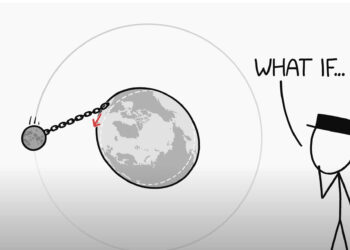About two months ago, I published an interview with Richard Poynder in which he discussed his recent announcement that he was “signing off from reporting on open access,” because “the movement has failed and is being rebranded in order to obscure the failure.” The interview generated lots of comments, and after watching and participating in that discussion, I added an additional comment of my own, observing that I was “getting the feeling that this post has emboldened some people to speak out who might not have felt able to do so before. And this leads me to wonder: who might be interested in the creation of a forum for multi-perspective, real-time discussion of OA and related issues?”
Several people subsequently reached out to me privately, expressing interest in such a forum. After getting through the holidays and then spending a few weeks in brainstorming conversation with them, I decided to take the leap and I created a new listserv, called Open Café, dedicated to “the free, open, constructive, and civil discussion of issues related to open scholarship – including open access, open science, open data, and adjacent topics. Open Café is a place for people across the full spectrum of viewpoints and perspectives to ask questions, offer opinions, and share information in an environment of mutual respect and openmindedness.”
I did so with some trepidation. Does the scholarly communication ecosystem really need (or want) another listserv? Aren’t people tired of talking about open access? Aren’t there already enough fora for these kinds of conversations? But since the risk was low (if no one signs up, then my questions are answered and we move on), I went ahead and created the list and announced it on a handful of social media sites and email discussion lists.
I was entirely unprepared for the response.
I made the announcement last Thursday morning; by the end of the day the list had 131 subscribers. I was pleased! Clearly there was at least a small group of people (globally speaking) who felt this kind of conversation was still needed and who wanted to participate. I went to bed feeling good about Open Café’s prospects as an intimate but interesting and probably useful venue for discussion.
When I woke up Friday morning, there were about 140 more subscription requests. As I write, it’s almost 8:00 am on Friday, and the requests continue to come in (13 have arrived in my inbox since I started writing this post about 10 minutes ago). Interestingly — excitingly — they’re coming from literally all regions of the globe and from all sectors of the scholarly communication ecosystem: librarians, publishers, nonprofits, government agencies, researchers, etc.
Now, I fully realize that a discussion group of several hundred (so far) doesn’t really represent a listserv powerhouse when compared to other, more well-established lists. But the fact that this many people signed up in less than 24 hours does suggest a few things to me:
- The global conversation about open scholarship in general, and open access in particular, is not over.
- There is a significant number of people in our community who are looking for a venue in which they can speak more freely on these issues than they feel they can in other venues.
- Despite what pundits and social commentators might tell you, there continues to a real appetite for civil, reasoned, and mutually respectful discourse on important topics of social and fiscal policy.
I’m really excited to see where this conversation goes. Feel free to join us! Just go to this page and sign up.
And now, if you’ll excuse me, I need to go approve the subscription requests of another [checks inbox] 20 — oops, wait, 25 — participants.
Discussion
4 Thoughts on "Who Would Have Thought That We Needed Another Listserv?"
Dear Rick,
Thank you for setting up this listserv. The discussion is already so vibrant and healthy, and a further sign of how much it was needed – not just the speed with which people signed up! You set up excellent ground rules, and I appreciate that you write in a way where I can ‘hear’ you speak so smiled many times! Like others, I am grateful for your effort and care to create and facilitate this discussion.
Pooja
Thanks for joining the conversation, Pooja!
And in case anyone is wondering about the “ground rules” Pooja mentioned, here’s the message that goes to all new subscribers (nearly 900 of us now):
Just a few quick notes of orientation from yr. listowner:
* While subscription requests are moderated, postings are not.
Submissions will be posted in real time. I’m confident that moderation
won’t become necessary, since presumably everyone who has signed up has
done so with the expectation of a constructive and mutually respectful
conversation.
* This means that disagreement is absolutely welcome here. It also means
that bullying, abusiveness, and incivility are not. We’re not going to
have a code of conduct because all of us are adult professionals and
I’m confident none will be needed. That said, if anyone believes that a
listmember is behaving inappropriately towards others, please contact me
off-list (at rick_anderson@byu.edu) and let’s talk.
* One of the things that makes listserv discussions effective is that
everyone has an equal opportunity to speak up; you can’t interrupt and
you can’t stop others from speaking. That said, it is possible to make
the experience exhausting or unpleasant for others, by (for example)
filibustering, overposting, constantly harping on the same narrow issue,
etc. All of us have seen this happen on other lists (though I’m sure
none of us has ever been guilty of these behaviors ourselves –
CERTAINLY I never have). I’m confident we’ll all do our best to be
considerate in our use of the list’s bandwidth and our demands on
fellow listmembers’ time, attention, and patience.
* In the spirit of openness, the list archives will be publicly
available; so bear in mind that your submissions will be your legacy.
😊
Thanks again for joining us, and welcome to the Café! Grab a beverage of
your choice and maybe a piece of cake, and let’s talk.
Dear Rick, Thank you for the call for the new Cafe. Too many mailing lists, SNS, blogs – not much good deep diving though, in multi-disciplinary channels. Not only publishers, techs, and libraries but also data sciences and multi-data-driven-science domains to follow these days. I am feeling too full to speak out to the world of chef, what more to order? I’d love to, but hope to summarize assistance.
(- from one of people to speak out who might not have felt able to do so before)
What an incredible response to the creation of Open Café! It’s truly inspiring to see such a diverse group of individuals from all corners of the scholarly communication ecosystem come together to engage in meaningful dialogue about open scholarship. The enthusiasm and eagerness to participate highlight the ongoing importance of discussing issues like open access in an open, respectful, and constructive manner. Kudos to the creator for fostering this platform for dialogue and exchange. Looking forward to seeing the conversations unfold!



